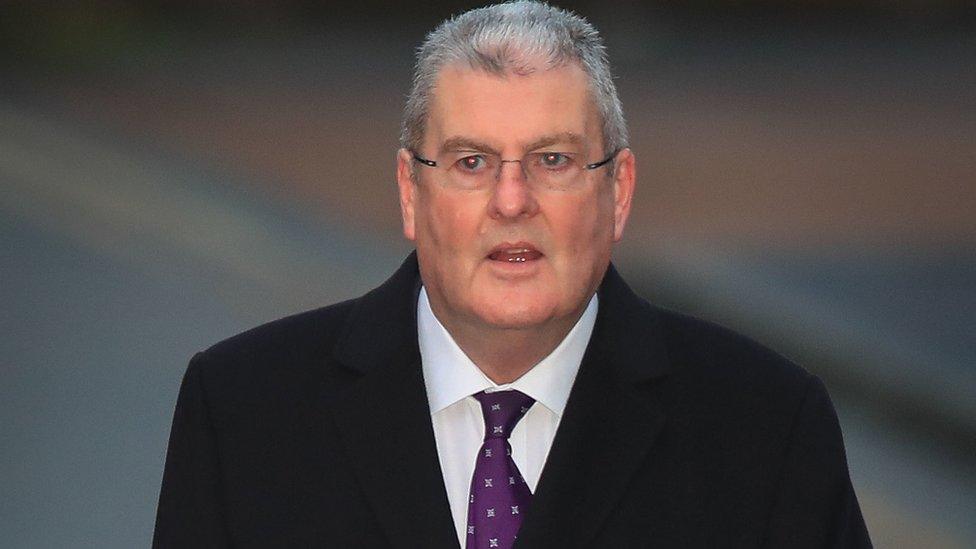Hillsborough trial: David Duckenfield case 'breathtakingly unfair'
- Published
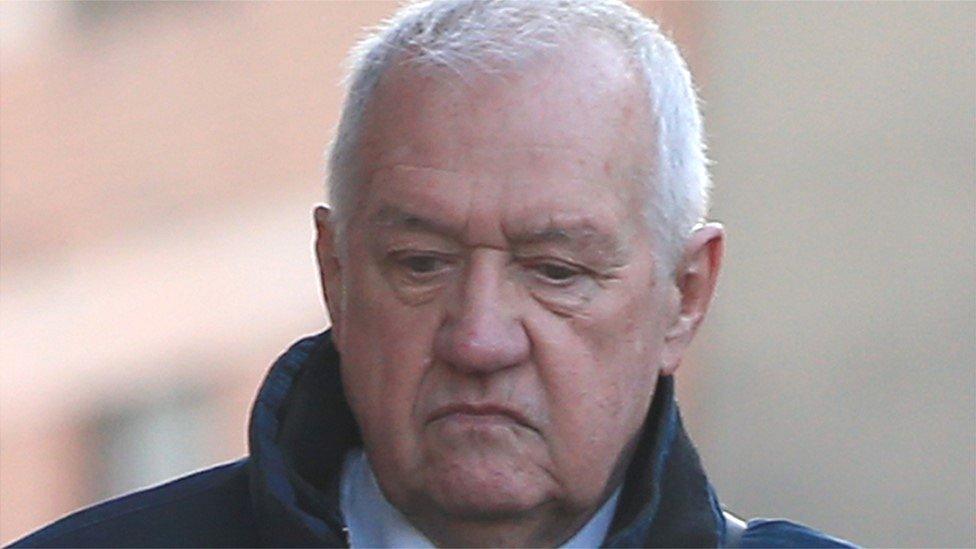
Match commander David Duckenfield denies the gross negligence manslaughter of 95 fans
The prosecution of Hillsborough match commander David Duckenfield was "breathtakingly unfair" as he was made to take the blame for others, a jury has heard.
Ben Myers QC made the claim in his closing speech at Preston Crown Court in defence of the 74-year-old.
He denies gross negligence manslaughter of 95 Liverpool fans, on 15 April 1989.
Mr Myers also said "it must be one of the most heartbreaking cases ever to come before an English court".
He said it was obvious now, but not then, of the dangers of putting large numbers of people in confined spaces in pens.
Football was plagued by hooliganism in the 1970s and 1980s and was a "world away" from today's game, he said.
"It affected how police planned the event and how they would react as matters unfolded."
He said it was "humbling" to be addressing the court "because of the scale of the case and the scale of the loss".
'Decade of incompetence'
The barrister told the jury failings at Hillsborough included faulty police radios, poor signage, a reduction in police manpower and stadium structure - none of which was Mr Duckenfield's fault.
He said his client was an "excellent police officer" who less than three weeks to prepare for the game after being promoted.
"He was faced with something that no-one had foreseen, no-one had planned for and no-one could deal with."
Mr Myers said the jury was being invited to "give him criminal responsibility for a decade of incompetence on the part of others".
The barrister told the court the case against his client, who chose not to give evidence, was heavily based on hindsight, adding: "In the real world you get one go."
He said the Hillsborough stadium "was potentially lethal" and there had been a "history of near-misses".
"It's like giving a captain a ship that's already sinking and judging him on how well he sails it," Mr Myers added.
"The system he was working with was riddled with system faults. It's not a fair start."
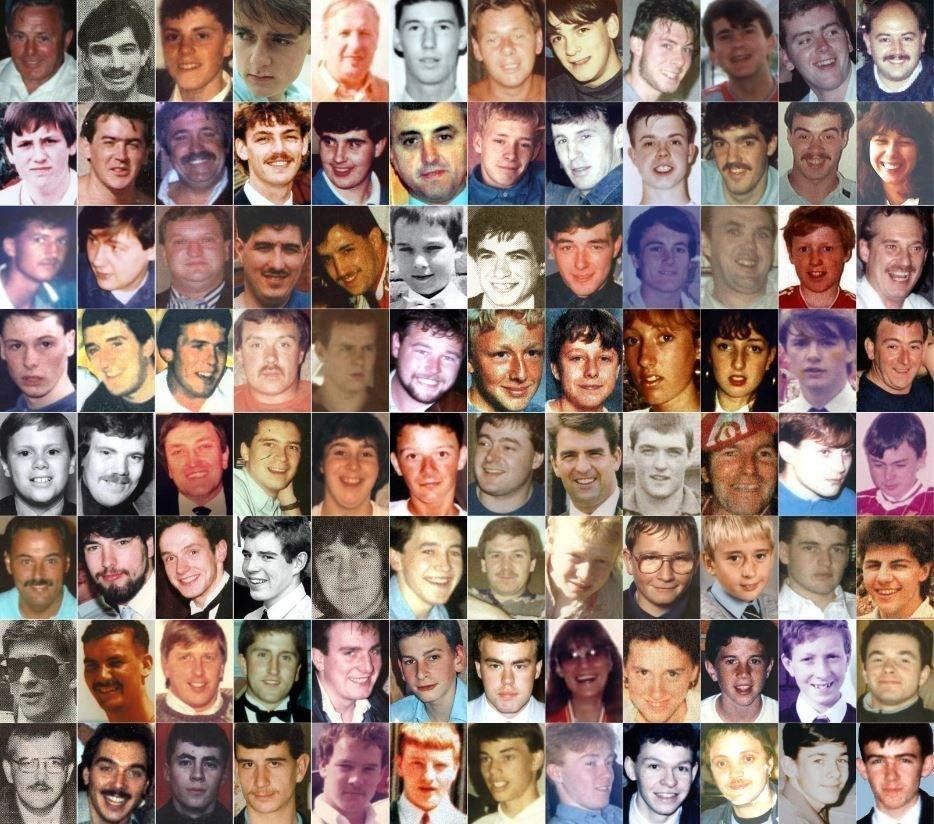
The people who lost their lives in the Hillsborough disaster
At one point he turned to the defendant and said: "Look at him now. Someone has to stand up for him. We do that, and we do it with vigour. He is an ageing man and not in the best of health."
Mr Myers said it would be "very wrong indeed" to convict Mr Duckenfield "as a way of expressing" sympathy over what happened.
Mr Myers also said it was "utterly wrong and deeply unfair" that the jury was shown video footage of the disaster by the prosecution.
He said: "It is not right to bridge evidential gaps with emotion and strong feeling."
On Thursday, prosecutor Richard Matthews QC said Mr Duckenfield had "ultimate responsibility" and should have made "lifesaving decisions".
Under the law at the time, there can be no prosecution for the 96th victim, Tony Bland, as he died more than a year and a day after the disaster.
Former Sheffield Wednesday club secretary Graham Mackrell, 69, denies failing to discharge a duty under the Health and Safety Act.
The trial continues.
- Published14 March 2019
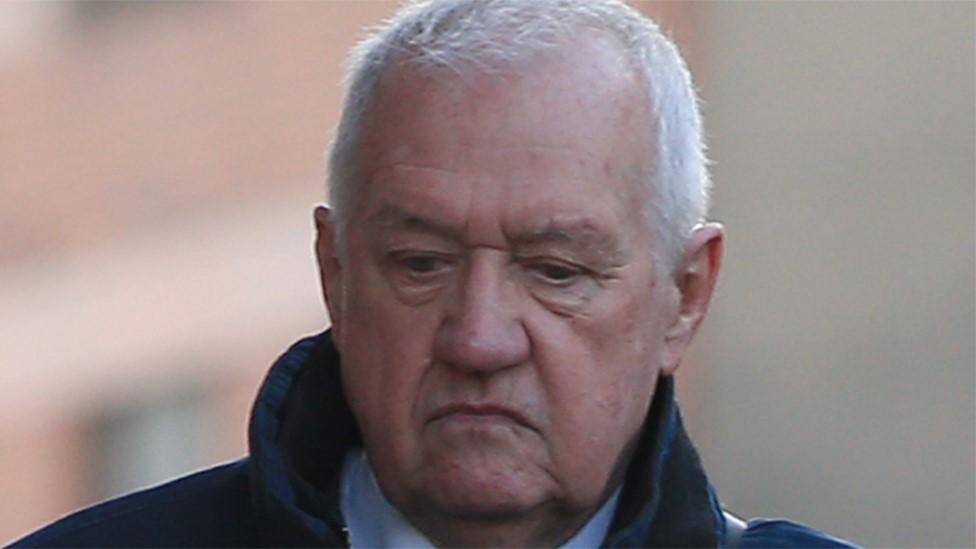
- Published13 March 2019
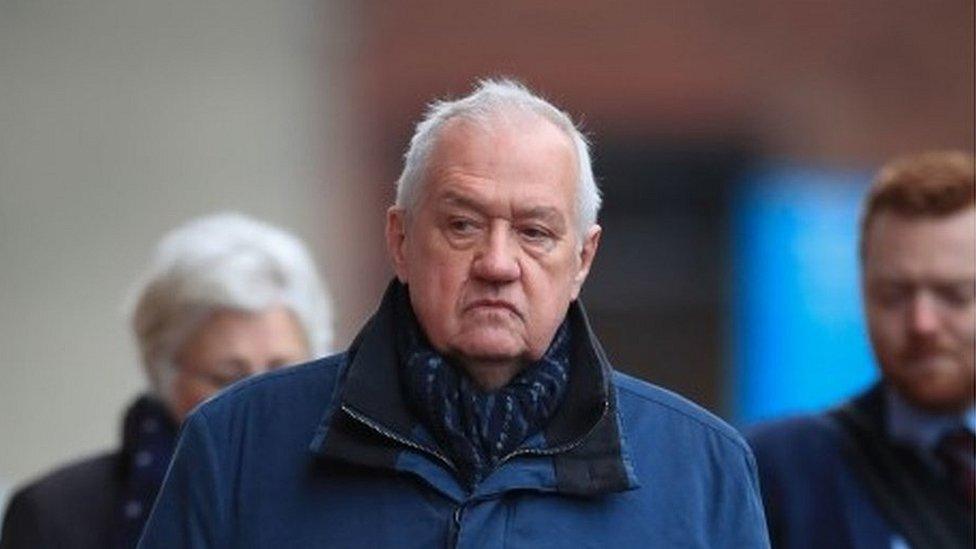
- Published5 March 2019
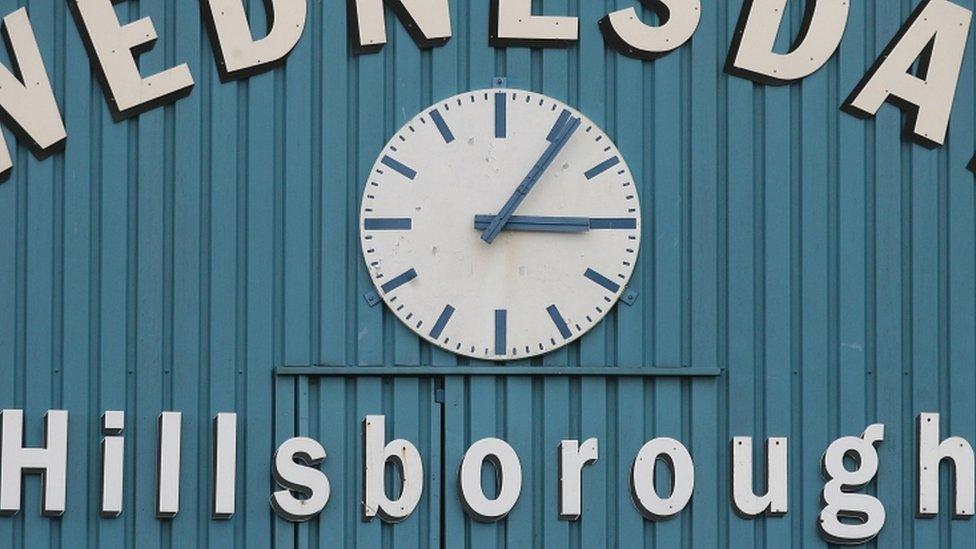
- Published23 January 2019
